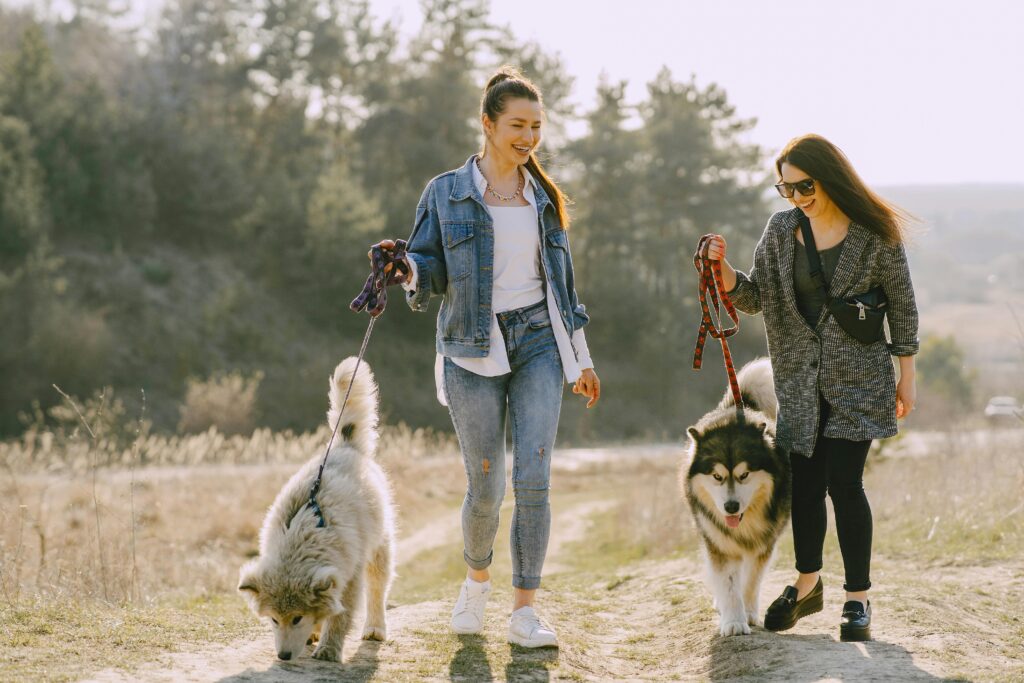Socialization is the cornerstone of a well-adjusted dog. It’s not just about playing with other dogs; it’s about teaching your pup how to interact with the world around them. A well-socialized dog is more confident, less anxious, and better equipped to handle life’s challenges.
But here’s a twist you might not have considered: dog socialization isn’t just about dogs. It’s also about introducing your puppy dogs to a variety of people, environments, and situations.
Think Outside the Dog Park
- Introduce Your Dog to Different People: From children to the elderly, exposing your puppy dogs to people of all ages and backgrounds is crucial for their social development.
- Expose Them to Various Environments: Visit parks, stores, and use public transportation to help your dog adapt to different settings.
- Practice Different Situations: Help your dog become comfortable with routine procedures like nail clippings and car rides.
Tips for Successful Socialization
- Start Early: The earlier you begin puppy training, the easier it will be for your dog to adapt.
- Keep It Positive: Use treats and praise to reinforce good behavior. Positive reinforcement dog training methods are highly effective.
- Be Patient: Remember, socialization is a process, not an event.
- Consider Puppy Socialization Classes: Look for puppy training classes to provide valuable guidance and opportunities for socialization.
A well-socialized dog is a happier dog. By investing time in socialization, you’re setting your pup up for a lifetime of confidence and companionship. So, what are you waiting for? Let’s go socialize your dog!

The Importance of Early Socialization
Early socialization is crucial for puppy training, helping them develop healthy social behaviors and reducing the risk of anxiety and fear-based aggression. A study published in the Journal of Veterinary Behavior found that dogs who were socialized early were less likely to exhibit problem behaviors, such as barking, biting, and separation anxiety.
The socialization window for puppies is typically between 3 and 16 weeks of age. During this time, puppies are most receptive to new experiences and are more likely to form positive associations with people, dogs, and environments.
The Benefits of Socialization
A well-socialized dog is more likely to be:
- Confident: Socialization helps dogs feel comfortable in various situations.
- Friendly: A well-socialized dog is more likely to be approachable to other dogs and people.
- Less Anxious: Socialization can help reduce anxiety and fear-based behaviors in dogs.
- Well-Behaved: A well-socialized dog is less likely to exhibit problem behaviors, such as barking and biting.
- More Adoptable: Socialized dogs are more likely to be adopted from shelters and rescues.
How to Socialize Your Dog
There are many ways to socialize your dog. Here are a few tips:
- Start Early: Begin puppy training as soon as possible.
- Expose Your Dog to a Variety of People, Dogs, and Environments: Incorporate various experiences into your dog’s routine.
- Use Positive Reinforcement: Reward your dog for good behavior during socialization.
- Be Patient: Understand that every dog is different, and socialization takes time.
Specific Activities for Socialization
- Take your dog for walks in different neighborhoods.
- Visit parks, stores, and other public places.
- Attend puppy training classes focusing on socialization.
- Play with puppy in the park.
- Invite friends and family over to meet your dog.
It’s important to note that not all dogs are the same. Some dogs may be naturally more social than others. If your puppy is shy or anxious, proceed slowly and avoid overwhelming them.
Socialization Challenges and Solutions
Even the most well-socialized dogs may encounter challenges. Here are common socialization issues and solutions:
- Fear of Strangers: If your dog is afraid of strangers, expose them to a variety of people in a controlled environment. Use positive reinforcement to help your dog associate strangers with good things.
- Dog Aggression: If your dog shows aggression toward other dogs, seek professional dog training services. Qualified dog trainers can teach your dog safe interaction techniques.
- Separation Anxiety: If your dog suffers from separation anxiety, provide plenty of exercise and consider crate training. Professional help may also be beneficial.
Additional Resources
- American Kennel Club: akc.org
- ASPCA: aspca.org
- PetMD: petmd.com
- The Humane Society of the United States: humanesociety.org
By following these tips and seeking professional help when needed, you can help your dog become a well-adjusted and happy companion.
Remember, Socialization is an Ongoing Process
Even adult dogs can benefit from additional socialization. Keep exposing your dog to new people, places, and experiences throughout their life.
Statistics on Dog Socialization
- A study published in the Journal of Veterinary Behavior found that dogs who were socialized early were less likely to exhibit problem behaviors.
- A survey by the American Veterinary Medical Association revealed that 75% of dog owners believe socialization is crucial for their pets.
- Research from the University of California, Davis, found that early socialization increases the likelihood of adoption from shelters.
Conclusion
Socialization is essential for dogs of all ages. By investing time and effort into socializing your dog, you can help them develop into well-adjusted and happy companions. Consider looking for dog training services for additional support in your journey!
